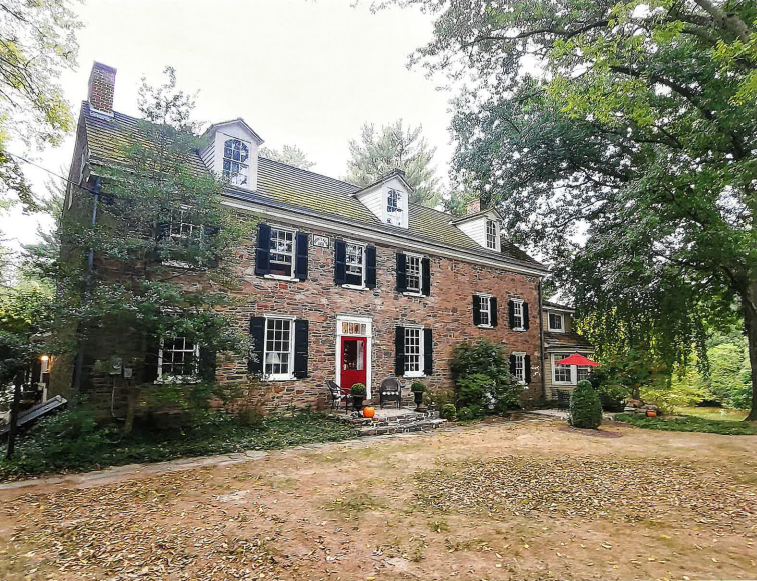Our area is home to many notable historic sites and properties, and a recent addition to Heritage Conservancy’s Register of Historic Places is no exception.
The stone farmhouse on a 2-acre property in Yardley called Te Deum maintains local significance as an enduring example of early 19th-century architecture and for its association with several generations of the Slack family.
Beginning in around the mid-17th century, Slack forebears emigrated from Holland and came to America. They settled in New York before moving to New Jersey and eventually made their home in Bucks County as early settlers of Newtown, Lower Makefield, and Upper Makefield.
The property’s history dates back to the early 1700s as a 778-acre land grant divided into parcels over the years and sold in part to John Slack in 1766. He sold a subdivision of the land, including the property on Woodside Road, to Cornelius Slack in 1785.
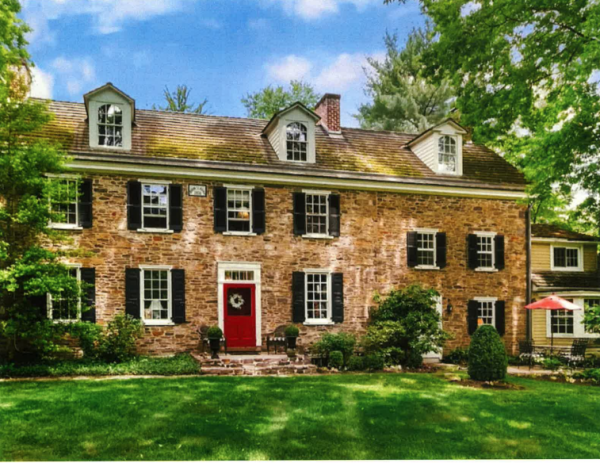
The Slack Family
Several members of the Slack family served as soldiers in the Continental Army during the American Revolution. They include James Slack, who at age 20 is said to have helped Gen. George Washington’s army cross the Delaware River on Christmas night in 1776. The surprise attack on Hessian troops in Trenton marked a turning point in the Revolutionary War.
The graves of Abraham Slack, Cornelius Slack, and James Slack can be found at Newtown Presbyterian Church, one of the oldest churches in Bucks County. They are among the graves of 28 church members who served in the Revolutionary War.
The historic graveyard includes Slack Cemetery, a small plot where the Reverend Henry Martin and his wife Elizabeth (who was a Slack) are interred. Rev. Martin was the first installed pastor of the Newtown Presbyterian Church (1752 – 1764). Members of the Slack family helped establish nearby Solebury Presbyterian Church (now Thompson Memorial Presbyterian Church) in 1811.
In 1846 Samuel Slack operated a tavern called the Yardleyville Hotel. Aaron Slack, who served with the Pennsylvania Infantry in the Civil War, changed the name to the Continental Hotel in 1866. Now called the Continental Tavern, it reportedly served as a way station on the Underground Railroad in the 1800s through the Civil War.
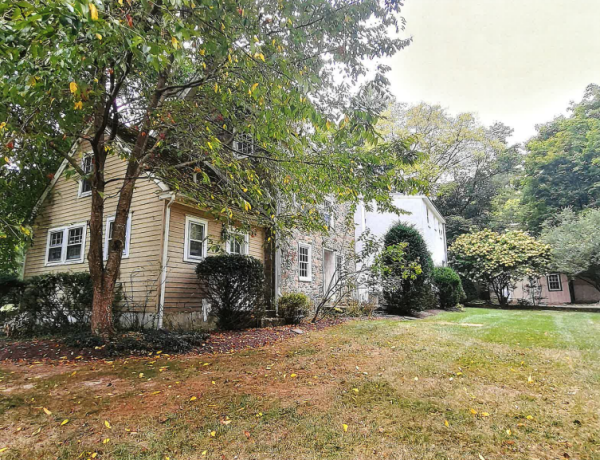
The property remained at 96 acres for well over a century (recorded deeds date back to 1785). John Slack owned the property from 1810 until his death in 1836. According to newspaper accounts from 1889, the real estate of Josiah B. Slack in Lower Makefield “on the road from Dolington to the river, was sold by Sheriff Comly to Edward Nickleson, Sen., the mortgagee. The four-acre lot was purchased by William H. Subers.”
The property was described in the Bucks County Intelligencer in 1889 as having 96 acres of farmland, the stone house, adjoining kitchen, an attic and cellar. Other outbuildings no longer associated with the house included a stone barn, hay houses, a stone wagon house, stone milk house and a cider house.
Future owners of the property included local quarry owner James Shuvelin, who sold the property in 1899, and members of the Cardall family
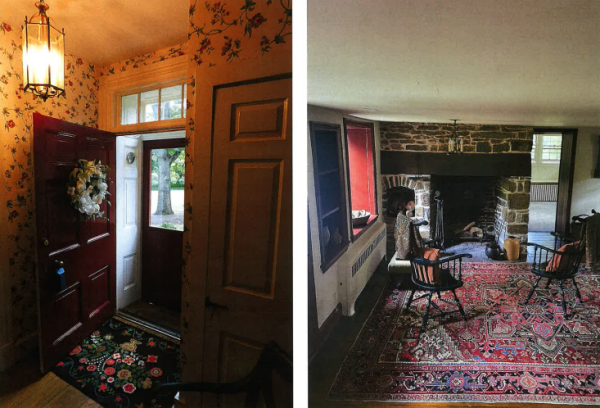
The House
The center hall-style house was built around 1768 and features a gable roof, door frames highlighted with Greek Revival-style pilasters that lead into the parlors, and a formal stairway. A kitchen wing with a large cooking fireplace was added to the main house.
Historians believe the stone section of the current house was the 18th century home of Cornelius Slack that was “enlarged” around the end of the first quarter of the 19th century.
The stone farmhouse now includes 12 rooms and features original pumpkin pine flooring, exposed stone work and windows with antique glass.
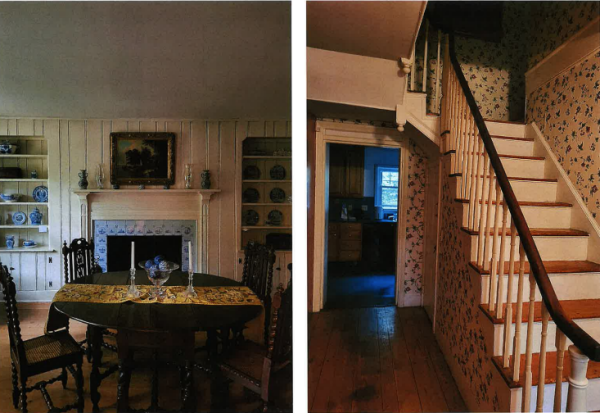
Heritage Conservancy’s Register of Historic Places recognizes over 700 properties. Its Historical Review Board considers each property and structure and its significance to the local community.
